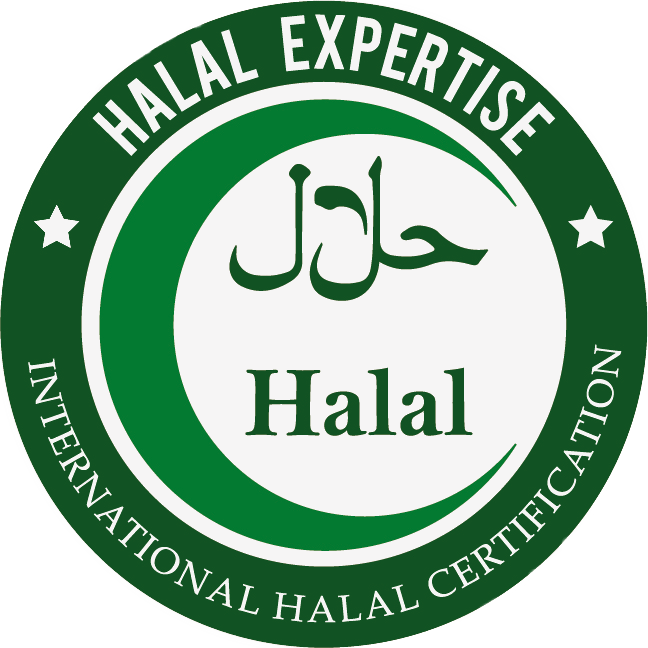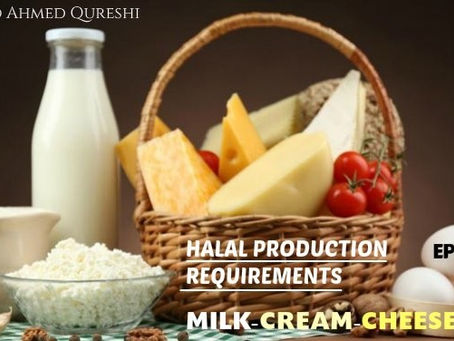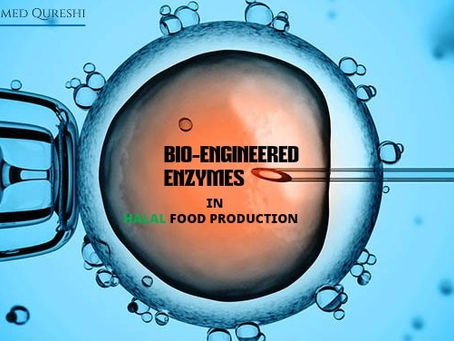Milk is one of the recommended foods for Muslims. It is considered pure and palatable for consumers:
And lo! In the cattle there is a lesson for you. We give you to drink of that which is in their bellies, from between the refuse and the blood, pure milk palatable to the drinkers.
Chapter XVI, Verse 66
Milk is almost a complete food. It provides nourishment, minerals, vitamins, and protein. There are different types of dairy products from minimally processed such as fresh milk and cream to highly processed products such as sauces, dressings, and desserts. Accordingly, halal issues vary from simple to complex.
In the most of the countries especially Australia, United States, South Africa, Saudi Arabia, milk is generally fortified with Vitamins A and D. To make these vitamins soluble in milk, they are mixed with or standardized with emulsifiers such as polysorbates. Other functional ingredients can also be added to increase the stability and shelf life of milk. Polysorbates are fatty chemicals which can be made from vegetable oils or from animal fats. For producing halal milk, these emulsifiers and other functional ingredients must be from halal sources such as plant oils. Some dairies during chocolate and other flavored milk processing use gelatin as a thickener agent. To make it suitable for Muslim consumers, they should use halal gelatin or vegetable gums.
Mono- and diglycerides are sometimes added to these products to prevent the fat phase from separating from the water phase. Both animal- and vegetable-derived monoglycerides are available and only vegetable ingredients should be used for this purpose. These are heat-processed, dehydrated milk powders. Normally no other ingredients are added to them. However, the spray drier must not have run any Haram products.
There are many different types of cheeses, and they are processed by using different methods and different ingredients. Cottage cheese, for example, may be made by curdling milk with acid, which makes it a Halal-suitable process. Other cheeses such as mozzarella, cheddar, and colby are made by the use of milk-curdling enzymes and bacterial cultures. Bacterial cultures are generally halal, as long as the media they are grown in are Halal, but enzymes can come from many different sources, as explained in previous articles. One must make sure that enzymes are Halal suitable. Some cheeses are ripened or aged by using bacterial cultures, molds, or enzymes. Cheeses processed with enzymes are more complex and might contain some objectionable ingredients.
Transgenically produced enzymes are not only permitted but are preferred for use in the production of Halal foods. For example, bovine rennet produced from calves that have not been slaughtered according to Muslim requirements is not acceptable by most Muslims, whereas chymosin (the main enzymes found in rennet) produced microbially through transcription from bovine chymosin genes is universally accepted by Muslims, as long as the standardizing ingredients and media in which they were raised contain no Haram ingredients nor has the fermenter been used previously with Haram ingredients without receiving a Halal-approved cleaning. (Note: Because most of these products are almost always kosher, these requirements are routinely met. However, in the absence of a kosher certification, a more comprehensive Halal inspection will be necessary.) Enzymes are a major area of concern for Halal cheese production. Several enzymes are obtained from pigs, which are Haram. Some enzymes are also derived from calves or other permitted animals, but if these animals are not Halal slaughtered the enzymes are not acceptable for Halal cheese production. For enzyme manufacturers there is an opportunity to capture the Halal market by making enzymes such as lipase through genetic engineering.
Shredded cheese might contain anti-caking agents such as animal or vegetable stearates. These ingredients should be from halal sources. All preservatives and mold inhibitors should be from Halal sources. The preservatives can be proprietary mixtures of natamycin, sodium benzoates, calcium propionates, and others, which may contain emulsifiers from animal sources, and so can be a concern for Muslim consumers. The above ingredients, especially enzymes, not only affect the status of cheeses but also have a major impact on cheese by-products such as whey. Because whey contains a considerable amount of enzymes, Muslim consumers are concerned about foods containing whey. In Pakistan most of the dairy milk provider use oxytocin injection before milking or Farmoline solution after it,which is point of major concern and must taken into account by the regulatory/supervisory authorities, as it will become hazardous and harmful for human health, and thus considered Makrooh.




